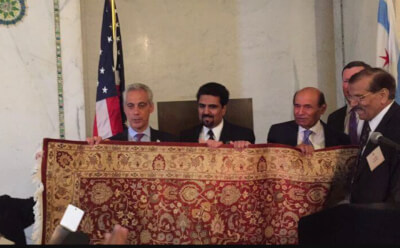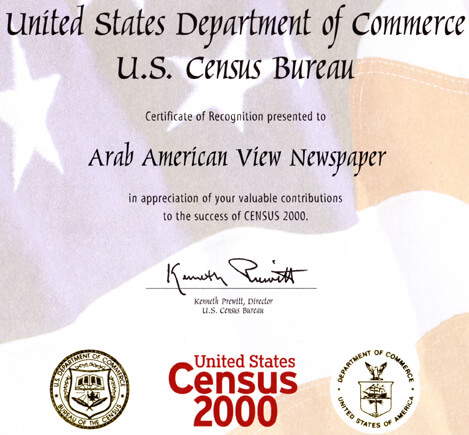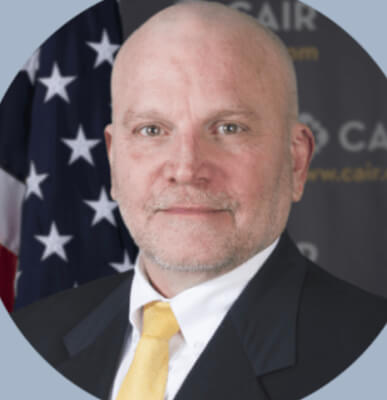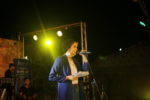Comprehensive look at the failings of former Chicago Mayor Rahm Emanuel
Emanuel had a special adversarial relationship with Chicago’s Arab American Community closing immediately after his first election the annual Chicago Arabesque Festival, the Advisory Council on Arab Affairs, and favoring non-Arabs at his annual Ramadan Iftars among other issues. His missteps in disclosing a secret video of a police shooting of an African American teenager in 2014 may have been the catalyst for his decision to not seek a 3rd term
By Ray Hanania
Chicago — If anyone understands how myth can trump reality, it is former Chicago Mayor Rahm Emanuel, currently the U.S. Ambassador to Japan, who has skated through a political career leaving a trail of controversy and political wreckage.
According to many Chicago observers in journalism and politics, Emanuel was a master of polishing his image to position himself for better jobs, while failing to overcome major issues facing the city.
The role of a Chicago mayor is difficult and faced with many insurmountable challenges that included among many issues: improving the city’s imbalanced school system, which favored rich communities over the poor; confronting the ever-rising crime and violence; addressing the city’s racial divide and dealing with a history of contentious political infighting.
Serving from 2011 until 2019, Emanuel’s term is overshadowed by controversy, according to those who covered and worked with him as mayor including in the city’s Arab American community, which is mostly Palestinian.
The son of a former member of the Irgun terrorist group in Palestine in the 1940s, Emanuel had an unstated aversion against Chicago’s Arabs and was instrumental in undermining many of the advances they secured under predecessors including former Mayors Harold Washington and Richard M. Daley.
Emanuel refused to support the community’s annual cultural festival, Chicago Arabesque, launched in 2006 by Daley, causing it to close.
Emanuel reorganized the Human Relations Commission, created by Washington and also supported by Daley that included the Advisory Council on Arab Affairs, eliminating it in 2011. The Advisory Council on Arab Affairs was disbanded during the reorganization.
Emanuel preferred to work with non-Arab Muslims who dominated his official Ramadan Iftars. And, he declined to support Arab American Heritage month activities, launched by Daley 1991 in November and then later changed to April in 2018.
“I spoke to him in person when he appeared at the DuSable Museum campaigning for mayor but he never returned my calls,” said Samir Khalil, founder of the Arab American Democratic Club and a longtime Palestinian American political activist.
“I asked why he wouldn’t meet with non-Arab Muslims and to set up a meeting in which he could discuss how to bring a coalition of Palestinians, and Arab Muslims and Christians, to meet with him but he never responded and refused to meet with us. We asked him so many times and he would ignore us.”
Khalil said he even asked Emanuel to meet with the Palestinian American mayor of Oak Park, Anan Abu Taleb, “But he refused. Mayor Emanuel never wanted to talk to us as Palestinian or Arabs. He didn’t mind to talk to non-Arab Muslims, though.”
Since Emanuel disbanded the Arab Advisory Council, the community has asked his successors former Mayor Lori Lightfoot and current Mayor Brandon Johnson to reinstate it, and while they promised to do so, “We are still waiting for them to do it,” Khalil said.
While Emanuel never publicly addressed the controversies or conferred with Arab American leaders, his actions were a direct response to repeated complaints by Jewish American leaders angered that the Chicago Arabesque Festival showcased Palestinian American organizations, such as the Palestine Children’s Relief Fund (PCRF).
“Mayor Daley insisted we, as a council, put ourselves out there on the plaza downtown to showcase the culture of Arabs from 22 countries around the world. He talked about what was happening to the humanity of Arabs thanks to twisted mainstream images and negative caricatures. He promoted Arabic language classes in the Chicago Public Schools, and kids were learning about the music and dance traditions of various communities throughout the Arab World,” said Roxane Assaf-Lynn a longtime member of the Human Relations Commission’s Advisory Council on Arab Affairs, and co-producer of the Chicago Arabesque festival.
“As a co-producer of the festival, ‘Chicago Arabesque,’ that ran for several years … I was proud to volunteer my time as a member of the Arab Advisory Council and as an Arab American – Palestinian in my case. We had our detractors, namely Alderman Berny Stone and the Jewish Federation, who tried to intimidate us into non-existence. Well, that didn’t work, but Rahm Emanuel entered office and wiped out the whole thing.”
Assaf-Lynn said Daley resisted complaints that came from members of the Chicago City Council who were Jewish, Jewish Community newspapers and the Jewish Federation of Chicago, involving the presence of Palestinian American organizations and displays.
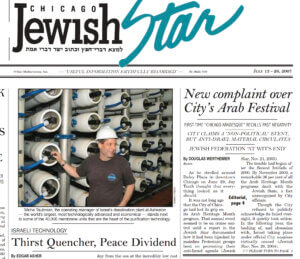
Critics said Emanuel failed to effectively address an array of challenges, from addressing the city’s racial divide to its failed education system, especially during his first term. The prestigious Carnegie Endowment for International Peace concluded, “his efforts to fix them over the past four years haven’t yiel¬ded es¬pe-cially good results.

Emanuel’s second term was even more controversial and several political journalists on the Right and the Left said political abuses dominated his administration. They described his term as a “failed administration.”
John Kass, former senior political columnist for the Chicago Tribune from 1980 until 2021, called Emanuel a “cynical political operative” famous for “the overdramatic.”
“Rahm was famous for sending dead fish to his political rivals, the man who stabbed a table with a steak knife calling out the names of his vanquished enemies, the fellow who said famously, ‘You never want a serious crisis to go to waste. And what I mean by that is an opportunity to do things that you think you could not do before.’ That’s how he governed. It cost him his name and reputation,” said Kass, who now publishes his political columns online at www.JohnKassNews.com.
Kass noted Emanuel may have decided not to run for re-election for a 3rd term because of his insensitive and selfish handling of a controversy in which a Chicago Police Officer, Jason Van Dyke, shot and killed a troubled African American teenager, Laquan McDonald. McDonald, who was only 17, was carrying a knife and was later found to be using drugs. McDonald was shot 16 times on Oct. 14, 2014.
Emanuel was running for re-election to a second term when the killing occurred. But the mayor refused to release a police video that graphically detailed the shooting and would have enflamed feelings even more. Some believed he feared it might undermine his re-election bid.
“A black teenager, Laquan McDonald, had been shot 16 times by Chicago police. It was a police murder. Rahm knew it could be the end of his career,” Kass noted.
“But Rahm was running for re-election and City Hall decided that the McDonald police video — much like that Hunter Biden laptop controversy — had to be suppressed. Rahm depended on the black vote. If released, it would cost him the election. So, the video of McDonald being killed was suppressed.”
The mayoral election was February 24, 2015 and Emanual faced four challengers. Even without the video being released, anger against Emanuel prevented him from winning that election. He received 46.5 percent of the vote but needed 50 percent plus one vote to win. He was forced into a run-off election on April 7, 2015. against runner-up, Cook County Commissioner Jesus “Chuy” Garcia, who is now a congressman from Illinois.
It wasn’t until after Emanuel defeated Garcia in the run-off that a judge ordered Emanuel to release the shocking McDonald shooting video on November 24, 2015, eight months later.
“How cynical was Rahm? During his re-election campaign, as he suppressed that police video, Rahm appeared with Black religious leaders at a rally on the South Side,” said Kass. The African American community represents about one-third of the city’s voting base.
“They called on the Holy Spirit and Rahm closed his eyes as they prayed. He seemed transformed by faith. Later, the video came out, showing the black teenager shot 16 times.”
Kass said the release of the video sealed his fate and forced him to not seek re-election in 2019.
The Intercept’s writer Curtis Black described Emanuel in a May 20, 2019 assessment of his two terms in office as a “fraud and failure.“
“Rahm Emanuel wants to become a pundit. His track record of being wrong on everything makes him perfectly qualified for cable news,” Curtis wrote.
Emanual advocated failed policies such as implementing “punitive welfare reforms” that punished the poor, and criticized the Democratic Party’s growing Progressive Movement, which often sympathized with Middle East nations over Israel.
Liberal Chicago political writer and columnist Ben Jarovsky, who has been with the Chicago Reader since 1984 disagrees with Kass on how Emanuel failed on that issue.
“Rahm Emanuel should have released the video early on, apologized for the violence and taken responsibility for it, and he would have easily won re-election,” said Jarovsky, who host a political interview podcast on Spotify.
“Mayor Rahm is about Mayor Rahm. As far as I can tell, everything he does is about advancing his career. I have become a student of reading the inner meanings of what he says and does to try and figure out what the chess move is that he is making.”
“But Rahm is a cagey guy. He likes to state things that makes him look wise and smart. I have met a lot of wise and smart people. I wouldn’t put Rahm in that category. I don’t say that with hatred. Rahm is about advancing Rahm,” Jarovsky observed.
Jarovsky noted that Emanuel spends much time in his hometown of Chicago even as U.S. Ambassador to Japan, adding he thinks the former Chicago mayor may be positioning himself to run for the U.S. Senate seat held by Dick Durbin, whom many people believe may not seek re-election.
During a Chicago TV interview on Jan. 10, 2024, Emanuel said would continue to serve as ambassador until his term ends before considering any other political office.
Many Palestinians have questioned his decision to volunteer in the Israeli military in 1991. Pro-Emanuel propaganda suggested he did it “during the Iraq War.” But the timing actually took place during the height of the Palestinian protests that took place during the first Palestinian Intifada. Ironically, Emanuel did not serve in the U.S. Military even though he is an American citizen.
In the same TV interview, Emanuel asserted that he is the victim of anti-Semitism and “anti-Jewish tropes.”
Emanuel said the word “Nazi” had been painted on his fence at a summer home he owns in Michigan, a clear act of anti-Semitism, unlike questions about his military service.
“Every year as Mayor I held a Ramadan dinner. The Islamic community here in Chicago condemned it [the painting of the word Nazi on his fence.] It’s hard to hate up close. And people did things that reflect what I think are our sense of community. I am Jewish. The Islamic community supported me when I was attacked, and I am a Jew,” Emanuel told a Chicago TV reporter, adding he has been the victim of anti-Semitism.
“I can either deal with the hatred and the ugliness. I have seen it when I ran for office both for mayor and for congress. I am not going to lose sight of the hatred but I am going to make sure it doesn’t silence the goodness of people.”
What Emanuel did not address is allegations that the invites to his annual Ramadan Iftars were given almost exclusively to non-Arab Muslims in a city in which the majority of Arabs and Muslims are Palestinian.
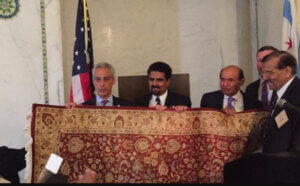
In an effort to secure an interview — which was denied to me a dozen times, I attended several Iftars including one Ramadan Iftar held on June 28, 2016. I was only one of eight Arab Americans (among 275 attendees) who had been invited among 275 attendees, not by the Mayor’s Office, but by one of his non-Arab Muslim co-hosts, Salman Aftab who tried to work closely with Arab Americans.
(This article first appeared in the Arab News Japan in English and in Japanese on Jan. 16, 2024. Click here for English and click here for Japanese.)
(Ray Hanania is an award-winning former Chicago City Hall reporter and political columnist. This column was originally published in the Southwest News Newspaper Group in the Des Plaines Valley News, Southwest News-Herald, The Regional News, The Reporter Newspapers. For more information on Ray Hanania visit www.Hanania.com or email him at rghanania@gmail.com.)
PODCASTS
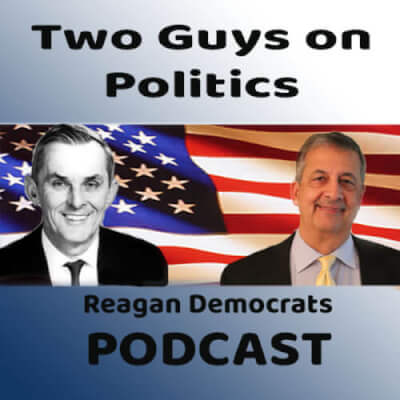
rip into the headline stories the rest of the media ignores. Click to view on YouTube

Click here to download the Podcast
A Message from Ray Hanania
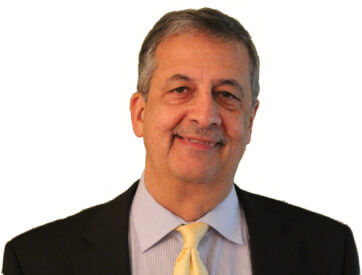
Thank you for reading my columns on mainstream American topics and Middle East topics, for listening to my podcasts and my radio shows.
I appreciate it very much.
Please send me your thoughts and views by email at rghanania@gmail.com. I would love to hear your comments and perspectives.
A Big Thank You for supporting my writings. Your subscription means a lot to me.
RAY HANANIA


- Arab and Muslim American groups denounce war criminal Netanyahu appearance before Congress - July 24, 2024
- Abandon Biden Campaign Condemns Biden’s Megalomania and Media Complicity (July 12, 2024) - July 13, 2024
- CAIR Calls on President Biden to ‘Stop Enabling’ Israeli Massacres After Mass Slaughter in Gaza ‘Safe Zone’ - July 13, 2024













